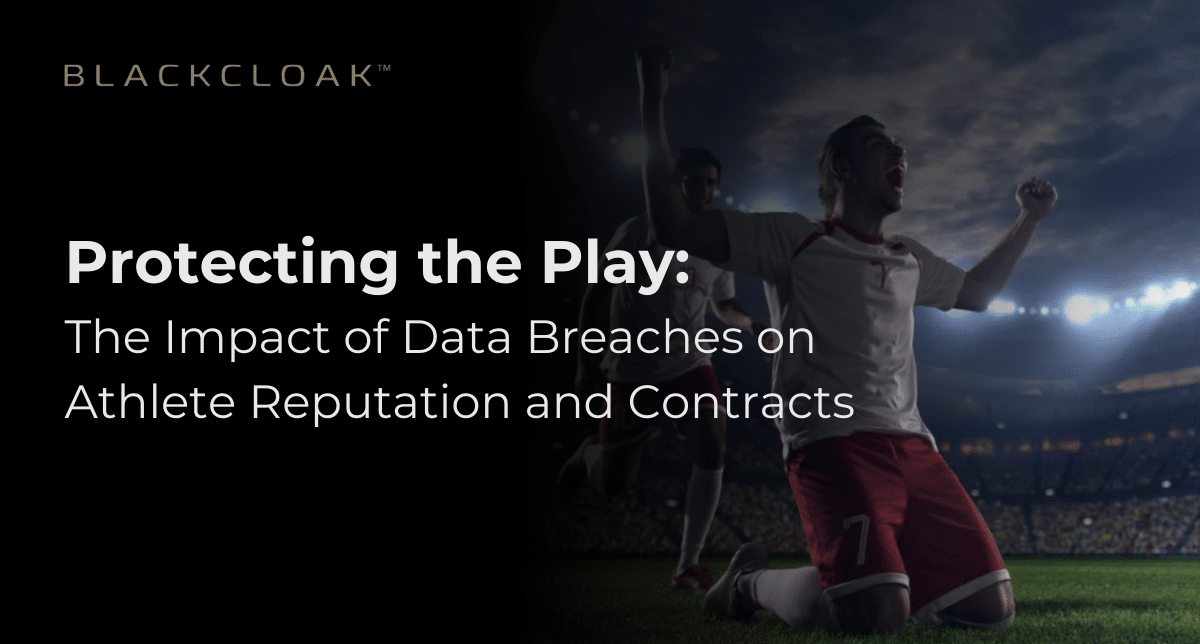Protecting the Play: The Impact of Data Breaches on Athlete Reputation and Contracts

In the high-stakes world of professional sports, an athlete’s reputation and contract negotiations hinge not only on their performance on the field/court/track, but also on their personal and digital security. Data breaches can have far-reaching implications for athletes, affecting their public image, financial stability, and career prospects.
Athletes, much like celebrities, have a significant digital footprint. Social media accounts, financial transactions, personal communications, and even health data are all stored digitally. A breach of this sensitive information can lead to damaging revelations, extortion attempts, or identity theft. For instance, the 2015 Ashley Madison data breach affected several high-profile athletes, leading to public relations crises and personal turmoil.
The Cost of a Compromised Reputation
A data breach can tarnish an athlete’s reputation overnight. In a world where endorsements and public image are closely tied to an athlete’s market value, such incidents can lead to loss of sponsorships, endorsements, and fan support. For example, in 2017, a prominent NBA player faced backlash after his social media accounts were hacked, revealing controversial private messages. This incident led to a temporary suspension of endorsements, affecting his financial earnings.
Athletes’ contract negotiations can be adversely affected by data breaches. Sensitive information regarding contract talks, health records, or past incidents can give teams or sponsors leverage during negotiations. A notable case occurred in 2016 when a football player’s contract negotiations with a major club were jeopardized due to leaked personal emails, affecting the final contract value.
According to a report by the Cybersecurity and Infrastructure Security Agency (CISA), the sports industry has seen a 45% increase in cyber attacks since 2019. These attacks often target personal data of high-profile athletes. Another study by the World Economic Forum highlights that personal data breaches are among the top three risks in the sports industry.
Best Practices for Athlete Data Security
- Robust Digital Hygiene: Athletes should practice strong password management, use two-factor authentication, and regularly update their digital devices.
- Educate and Be Informed: Staying informed about potential cybersecurity threats and understanding how to recognize phishing or scam attempts is crucial.
- Professional Cybersecurity Assistance: Seeking professional help from cybersecurity firms like BlackCloak can provide tailored digital protection services.
The impact of data breaches on athletes extends beyond just temporary inconveniences. It can lead to lasting damage to their reputation, financial security, and career opportunities. As the digital landscape evolves, so should the cybersecurity measures of athletes. We understand the unique challenges faced by sports professionals and offer comprehensive solutions to protect their digital lives, ensuring they can focus on what they do best – excel in their sport.










